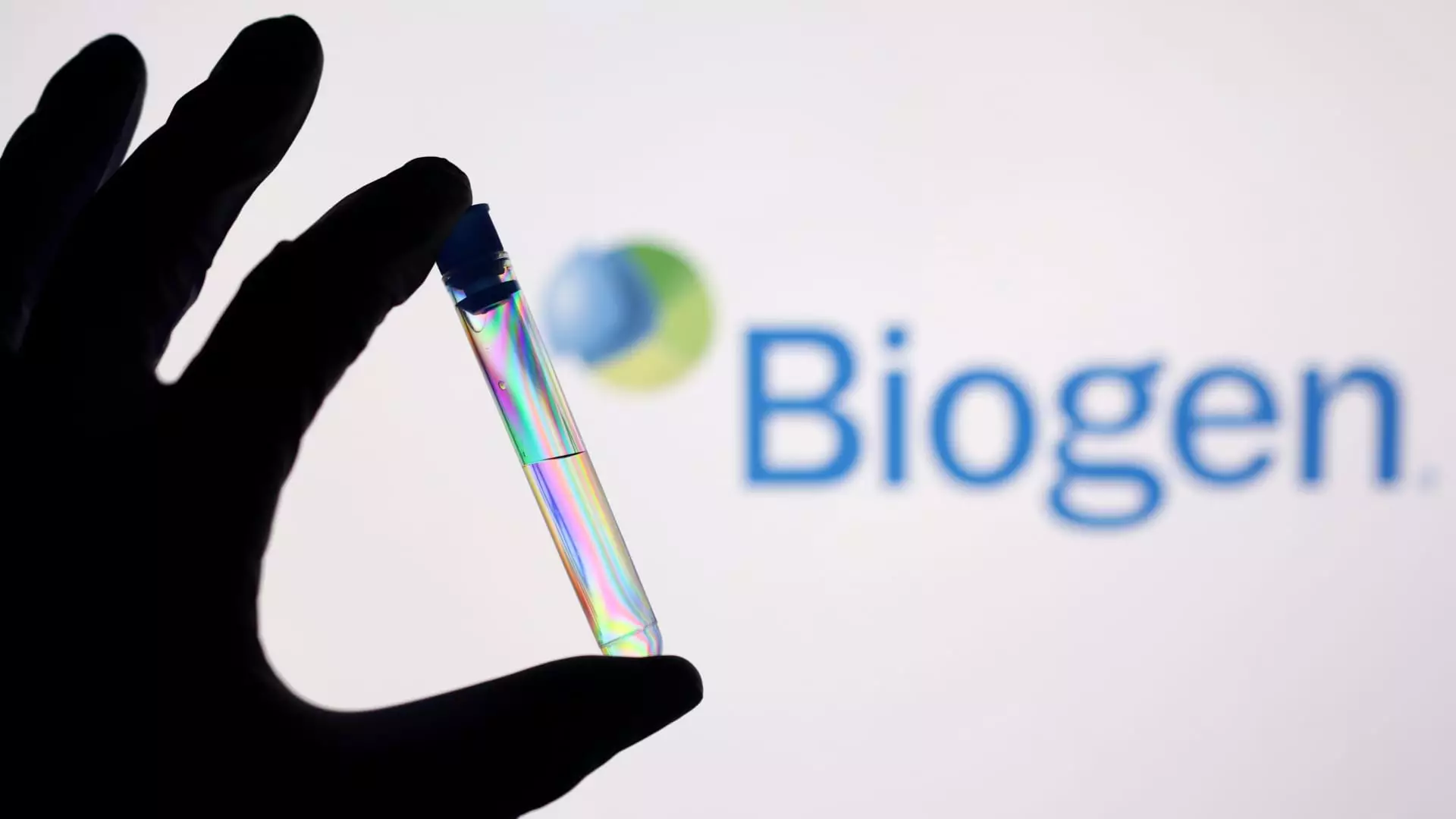On Wednesday, Biogen released its third-quarter financial results, showcasing a stronger-than-anticipated performance that surprised many analysts. The company reported revenues and adjusted earnings that not only exceeded expectations but also led to a revision of its full-year profit guidance. This optimistic prognosis stems largely from the successful uptake of its innovative Alzheimer’s treatment, Leqembi, as well as new products that are beginning to find their footing in the market. The adjusted earnings per share (EPS) are projected to rise to between $16.10 and $16.60, up from an earlier forecast of $15.75 to $16.25.
Despite this positive momentum for 2023, Biogen remains cautious about its future, anticipating a modest decline in sales in 2024, projected to be in the low single digits. This foresight underscores the volatility that can accompany pharmaceutical sales, particularly in specialized therapeutic areas.
Leqembi, a groundbreaking drug co-developed with Eisai, marks a significant advancement in Alzheimer’s treatment, as it is only the second medication confirmed to slow disease progression to receive approval in the U.S. Since its market entry last summer, the adoption process has been slower than ideal. Key logistical hurdles, including stringent requirements for diagnostic testing, ongoing brain imaging, and the limited availability of neurologists, have contributed to this gradual rollout. However, there are signs that the medication is gaining traction, with third-quarter sales reported at $67 million, including $39 million from the U.S. market alone, far exceeding the analysts’ expectation of $50 million in global sales. This stark contrast from the mere $10 million in sales during its debut year suggests a growing acceptance among healthcare providers and patients alike.
Yet, an unanswered question remains regarding patient enrollment—how many individuals are actively benefiting from this promising drug? This metric will be crucial in determining the long-term success of Leqembi and Biogen’s broader ambitions.
Examining the financial landscape, Biogen’s third-quarter revenue came in at $2.47 billion, slightly lower than the same quarter last year by about 3%. While this decline could raise concerns, it’s important to highlight the company’s turnaround in net income, which soared to $388.5 million, translating to an EPS of $2.66. This turnaround is particularly notable when compared to the previous year’s net loss of over $68 million. Adjusted for various one-time charges, the company showcased an EPS of $4.08, again surpassing Wall Street expectations of $3.79.
Additionally, Biogen has learned to balance its portfolio, offsetting losses in its multiple sclerosis segment with gains from Leqembi and other emerging therapies targeting rare diseases and depression. This strategic diversification could be key to stabilizing revenue streams amid an ever-changing healthcare landscape.
As Biogen wraps up its third quarter, the company’s future, particularly regarding its innovative treatment timelines and market strategies, remains a focal point for investors and healthcare advocates alike. The firm’s ability to navigate its existing challenges while capitalizing on the success of Leqembi could very well define its trajectory in the coming years. By maintaining its commitment to innovation and adaptability, Biogen appears poised to continue its recovery and growth in a competitive market.


Leave a Reply